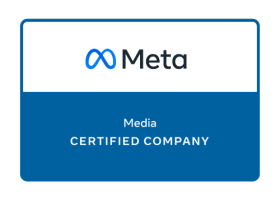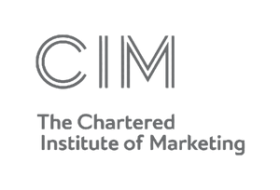A content management system (CMS) is an essential tool for companies looking to create, manage, and optimise their customers’ digital experience. It allows us to collaborate in creating, editing, and producing digital content such as web pages and blog posts. CMS can be cloud-based or on-premises, and they offer features like content creation and editing, content organisation and management, collaboration and workflow, design and layout control, site maintenance and updates, SEO-friendly features, scalability and extensibility, user management and access control, and mobile responsiveness. CMS separates content management from the presentation layer, making it easier for us to focus on content creation without worrying about coding. The top CMS options include WordPress, Drupal, Joomla, and Magento. These CMS platforms offer various features and benefits, and the choice depends on the specific needs and requirements of our business.
Key Takeaways
- A Content Management System (CMS) is a valuable tool for companies to create, manage, and optimise their digital content.
- CMS allows us to collaboratively create, edit, and publish web pages and blog posts.
- Features of a CMS include content organisation, design control, site maintenance and updates, SEO-friendly capabilities, and user management.
- Top CMS options include WordPress, Drupal, Joomla, and Magento, each with its unique features and benefits.
- Choosing the right CMS depends on our specific business needs and requirements.
Understanding Content Management Systems
So, what exactly is a Content Management System (CMS)? A CMS is a powerful website management system that enables seamless content organisation, administration, and publishing for businesses in the digital realm. It provides a centralised platform for creating, editing, and managing digital content, such as web pages and blog posts, without the need for coding expertise.
A Content Management System streamlines the entire process of content creation and management, making it easier for businesses to maintain a dynamic online presence. With a CMS, users can collaborate in real-time, ensuring efficient workflow and timely content updates. The system separates content management from the presentation layer, allowing users to focus solely on content creation and ensuring consistent branding across all digital platforms.
In addition to content organisation and administration, CMS offers a range of other essential features. It provides robust design and layout control, allowing businesses to customise the appearance of their websites according to their brand guidelines. With built-in SEO-friendly features, CMS helps optimise content for search engines, improving online visibility and attracting more organic traffic. Furthermore, CMS platforms are scalable and extensible, meaning they can grow alongside the business and adapt to changing needs.
One of the key advantages of a Content Management System is its user management and access control capabilities. With user roles and permissions, businesses can assign different levels of access to individuals, ensuring only authorised users can edit and publish content. Moreover, CMS platforms are designed to be mobile-responsive, enabling businesses to deliver a seamless digital experience across various devices, including smartphones and tablets.
Content Management System Benefits:
- Efficient content creation and management
- Real-time collaboration and workflow
- Customisable design and layout control
- Easy site maintenance and updates
- Improved SEO performance
- Scalability and extensibility
- User management and access control
- Mobile responsiveness
By utilising a Content Management System, businesses can take full control of their digital content, enhance collaboration among team members, and deliver an exceptional online experience to their customers.
| Content Management System | Website Management System | Web Content Management | Content Administration | Digital Content Management | Content Publishing Platform | Content Organisation System | Website Content Management |
|---|---|---|---|---|---|---|---|
| WordPress | Yes | Yes | Yes | Yes | Yes | Yes | Yes |
| Drupal | Yes | Yes | Yes | Yes | Yes | Yes | Yes |
| Joomla | Yes | Yes | Yes | Yes | Yes | Yes | Yes |
| Magento | Yes | Yes | Yes | Yes | Yes | Yes | Yes |
Key Features and Benefits of CMS
A Content Management System (CMS) comes equipped with a plethora of features that simplify content management, collaboration, and optimisation processes for marketers. One of the key advantages of a CMS is its ability to separate content management from the presentation layer. This means that marketers can focus on creating and editing content without having to worry about coding or technical aspects.
CMS platforms offer a range of features that enhance content organisation and management. With a CMS, marketers can easily create, edit, and publish web pages, blog posts, and other digital content. The CMS provides a user-friendly interface that allows for seamless collaboration and workflow management. Multiple team members can contribute to content creation, making it easier to manage and maintain a consistent brand voice and style.
Another benefit of using a CMS is the control it offers over design and layout. Marketers can customise the look and feel of their website, ensuring that it aligns with their brand identity. With built-in templates and themes, it becomes effortless to create a visually appealing and user-friendly website. The CMS also allows for quick and easy updates to the site’s design and layout, providing flexibility and adaptability as marketing strategies evolve.
Furthermore, CMS platforms offer SEO-friendly features that help marketers optimise their content for search engines. From metadata management to keyword optimisation, a CMS provides the necessary tools to improve search engine rankings and drive organic traffic to the website. This ensures that the content reaches a wider audience and increases brand visibility.
| Key Features and Benefits of CMS |
|---|
| Content management and editing |
| Collaboration and workflow management |
| Design and layout control |
| Site maintenance and updates |
| SEO-friendly features |
| Scalability and extensibility |
| User management and access control |
| Mobile responsiveness |
In addition, a CMS offers scalability and extensibility, allowing businesses to grow and adapt their digital presence as needed. They can easily add new features and functionalities to the website without requiring extensive coding or development resources. This scalability ensures that the CMS can keep up with the evolving marketing needs of the business.
Furthermore, user management and access control are essential features of a CMS. Marketers can assign roles and permissions to team members, ensuring that only authorised individuals can access and modify content. This helps maintain data security and prevents unauthorised changes or deletions.
Lastly, mobile responsiveness is a crucial aspect of any modern website. With a CMS, marketers can ensure that their content is optimised for mobile devices, providing a seamless user experience across different screen sizes. This mobile responsiveness is increasingly important, as a significant portion of internet users access websites through their smartphones or tablets.
Overall, a Content Management System offers a wide range of features and benefits that empower marketers to create, manage, and optimise their digital content effectively. From streamlined collaboration and workflow management to SEO-friendly features and mobile responsiveness, a CMS is an indispensable tool for businesses in the digital era.
Popular CMS Options
When it comes to choosing the right Content Management System (CMS) for your business, several options stand out as the industry leaders. These CMS platforms offer a range of features and benefits that cater to different business needs. Let’s take a closer look at some of the most popular CMS options available:
| CMS | Features | Benefits |
|---|---|---|
| WordPress | Easy to use, customisable themes and plugins | Widely supported, the large community of developers |
| Drupal | Advanced content management capabilities, robust security | Highly scalable, and flexible for complex websites |
| Joomla | User-friendly interface, a wide range of extensions | Great for e-commerce, suitable for medium-sized businesses |
| Magento | Specialised for e-commerce, rich features for online stores | Scalable, built-in SEO optimisation |
WordPress:
“WordPress offers a user-friendly interface and a vast library of customisable themes and plugins, making it a popular choice for businesses of all sizes.”
With its easy-to-use interface, WordPress allows users to create and manage content effortlessly. It offers a wide range of customisable themes and plugins, enabling businesses to create unique and engaging websites. Additionally, WordPress has a large community of developers who regularly contribute new features and provide support, which makes it a reliable option for businesses.
Drupal:
“Drupal stands out with its advanced content management capabilities and robust security features, making it an ideal choice for complex websites that require scalability and high-level customisation.”
Known for its flexibility and scalability, Drupal is favoured by businesses that require advanced content management capabilities. It offers robust security features, ensuring that sensitive data is protected. Drupal is highly customisable, making it suitable for complex websites that need extensive customisation options. It also provides excellent support for multi-site management, making it an ideal CMS for larger organisations.
Joomla:
“Joomla’s user-friendly interface and wide range of extensions make it a popular choice for businesses seeking an intuitive CMS that can accommodate medium-sized websites and e-commerce platforms.”
Joomla offers a user-friendly interface that allows businesses to quickly create and manage content. It provides a vast library of extensions, enabling businesses to add functionality to their websites without extensive coding. Joomla is particularly well-suited for medium-sized businesses and e-commerce platforms, offering a balance between simplicity and flexibility.
Magento:
“Magento is a specialised CMS designed for e-commerce, offering a comprehensive set of features tailored to online stores. It provides scalability and built-in SEO optimisation, making it a popular choice for businesses in the e-commerce industry.”
Specifically designed for e-commerce, Magento offers a wide range of features dedicated to online stores. It provides scalability, allowing businesses to grow and expand without limitations. Magento also comes with built-in SEO optimisation, helping businesses improve their online visibility and drive more organic traffic to their websites.
When choosing the right CMS for your business, carefully consider your specific needs and requirements. Evaluate the features, benefits, and scalability of each CMS option to find the one that best aligns with your business goals. Whether it’s WordPress, Drupal, Joomla, or Magento, implementing a CMS can significantly enhance your digital presence and streamline your content management processes.
Choosing the Right CMS for Your Business
With a wide range of Content Management System (CMS) options available, selecting the perfect one for your business can be a challenging task. It’s essential to consider your specific needs and requirements to make an informed decision that aligns with your marketing objectives.
When evaluating CMS options, start by assessing your website management needs. Determine whether you require a system that can handle multiple websites, integrate with e-commerce platforms, or provide advanced customisation options. Consider the scalability and extensibility of the CMS to ensure it can support your business as it grows.
Next, focus on web content management features. Look for a CMS that offers intuitive content creation and editing capabilities, as well as robust organisation and management tools. Collaboration and workflow capabilities are crucial for teams working on content creation and approval. The ability to control design and layout allows you to maintain a consistent brand image across your website.
Additionally, it’s important to choose a CMS with SEO-friendly features. Look for built-in tools that facilitate search engine optimisation, such as customisable meta tags, URL structures, and XML sitemaps. Mobile responsiveness should also be a priority, as it enables your website to adapt to various screen sizes and devices. Lastly, consider user management and access control features to ensure the security and privacy of your content.
| CMS Option | Features | Benefits |
|---|---|---|
| WordPress | Easy to use, vast plugin library | Great for blogs and small to medium-sized websites |
| Drupal | Advanced customisation, scalable | Ideal for large and complex websites |
| Joomla | User-friendly interface, extensive design options | Well-suited for e-commerce and social networking sites |
| Magento | E-commerce-focused, robust features | Excellent for online stores and enterprise-level websites |
By considering these factors and exploring the features and benefits of different CMS options, you can find the right Content Management System that enables you to efficiently manage and optimise your website and digital content. Remember to analyse your business requirements, prioritise key features, and select a CMS that aligns with your long-term marketing goals.
Conclusion
In conclusion, a Content Management System (CMS) is a vital tool that empowers businesses to effectively manage and optimise their digital content, revolutionising marketing strategies in today’s digital landscape. With a CMS, companies can streamline their content creation and management processes, collaborate with ease, and ensure a seamless digital experience for their customers.
A CMS offers a wide range of features and benefits, including content creation and editing, organisation and management, collaboration and workflow, design and layout control, site maintenance and updates, SEO-friendly features, scalability and extensibility, user management and access control, and mobile responsiveness. By utilising these features, businesses can enhance their online presence, improve search engine rankings, and deliver personalised and engaging content to their target audience.
When it comes to choosing a CMS, there are popular options available such as WordPress, Drupal, Joomla, and Magento. Each platform has its unique strengths and capabilities, catering to different business needs and requirements. By carefully evaluating these options and considering factors such as website management, content organisation, and administration requirements, businesses can select the most suitable CMS for their specific goals.
Implementing a CMS is a game-changer for marketing strategies, giving businesses the ability to efficiently manage, update, and optimise their digital content. It empowers marketers to focus on creating compelling and valuable content, while the CMS takes care of the technical aspects. By utilising a CMS, businesses can stay ahead in the ever-evolving digital landscape and drive growth through effective content management and marketing.
FAQ
Q: What is a Content Management System (CMS)?
A: A Content Management System (CMS) is a tool that allows users to create, manage, and optimise their customers’ digital experience. It enables collaboration in creating, editing, and producing digital content such as web pages and blog posts.
Q: What are the key features of a CMS?
A: A CMS offers features like content creation and editing, content organisation and management, collaboration and workflow, design and layout control, site maintenance and updates, SEO-friendly features, scalability and extensibility, user management and access control, and mobile responsiveness.
Q: How does a CMS benefit businesses?
A: A CMS separates content management from the presentation layer, making it easier for users to focus on content creation without worrying about coding. It streamlines content creation and management processes, improves collaboration, and enhances website performance and user experience.
Q: What are some popular CMS options?
A: Some of the top CMS options include WordPress, Drupal, Joomla, and Magento. These platforms offer various features and benefits, and the choice depends on the specific needs and requirements of the business.
Q: How do I choose the right CMS for my business?
A: To choose the most suitable CMS for your business, consider factors such as website management, content organisation, and administration requirements. Evaluate the features, scalability, and user-friendliness of different CMS options before making an informed decision.



